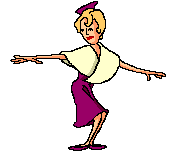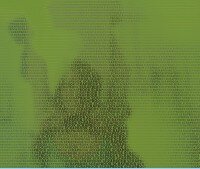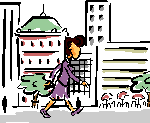(Some of) The Worst Books I’ve Ever Read
Turning Back the Clock: Hot Wars and Media Populism by Umberto Eco
Umberto Eco likes to think of himself as disagreeable. Being described as such, he says, “fills me with pride and virtuous satisfaction”. To this end, he exhorts readers to, amongst other things, insult the dead, ritually sacrifice presidents, choose their own judge, and boycott products sold on state-owned television channels. None of which, it could possibly be argued, is entirely unreasonable or disagreeable.
What is disagreeable – more irritating, really – is Eco’s tone. Supercilious, ponderous, petulant, and almost entirely lacking in humour, he deems the entire southern US morons, informs us that not all suicide bombers are Muslim (did anyone think they were?), and dismisses any dissenters as fools and infantile idiots.
He is not entirely without generosity. Writing on immortality, he comments that, though they may not leave anything of particular note behind, even “the humblest creature” can achieve immortality by passing on tales of his experience to his children. How magnanimous.
The Virgin Flames by Chris Abani
Los Angeles, California. Black is a busy man. By day he collects racist and sexist jokes from toilets for his mural (one from Buckingham Palace via Sharon Osborne), while being stalked by Archangel Gabriel, and obsessing over transvestite stripper, Sweet Girl. By night he stands atop his spaceship in Iggy the psychic tattooist’s wedding dress, letting devotees believe he is the Virgin Mary.
It’s so self-consciously edgy, it’s painful. Maybe I’m a cynical conventionalist, but I’m not sold on his cast of self-obsessed artistes, expecting you to be as enamoured of their nonsensical ramblings as they are while they babble on about “changing the psychic landscape” of LA by painting it without the religious buildings.
I did learn something: transvestite strippers hide their genitalia through careful manipulation and strategically placed surgical tape. Should you want to know how it feels, Black’s “bliss, breathlessness and the onset of terror” probably cover most eventualities.
The Taqwacores: A Novel by Michael Muhammed Knight
Originally published on photocopiers and distributed from the back of Knight’s car in mosque parking lots, The Taqwacores charts the attempts by Yusef, a punk and convert to Islam at 16, to live entirely by Muslim principles and faith.
Were The Taqwacores a novella, Knight’s continual examinations of Islam and Punk would be interesting and energetic, but at 250 pages the repetitive conversations and contemplations slow the pace and largely supplant plot and character. Yusef prays five times a day hoping to find spiritual fulfilment and, at times, succour in Muslim teachings so it’s unsurprising that it shapes his life and character. However, when every party features religious debate, Yusef’s every waking moment appears taken up with prayer or reflections on his faith, and every page requires consultations of the glossary of Arabic words, the book’s themes become irksome. It’s an educational, though not entirely pleasurable, read.
The Pornographer Diaries by Danny King
I’m not especially knowledgeable about porn, but I’ve always assumed it is manufactured for men who think there is no more to sex than a Brazilian wax and a hard-on. A clichéd view perhaps, but one Danny King’s fictional exposé of the girly porn mag industry disappointingly confirms.
It begins entertainingly enough with Godfrey’s almost endearingly self-deprecating humour. Soon, however, so repetitive is the macho posturing that it reads like a novel-length issue of Loaded until it is just one cliché after another: uniformly sex-mad models (at one point he is set upon by 12 such women); dialogue like pubescent chat; excruciating attempts to debunk feminism; endless nights spent wasted; all rounded off in a finale which transforms Godfrey from sexual ineptitude to stud.
Maybe if I were closer to ladette I’d get it, but if I ever hear the phrase, “take it up the arse”, again I’ll slap whoever utters it.
My Name Is Denise Forrester by Nick Brooks
Denise Forrester is a lonely, misunderstood child, struggling with playground bullies and a difficult – if, sometimes, amusingly eccentric – home life. It’s a familiar scenario with potential for both comedy and poignancy, but Brooks appears so smitten with his own wordiness that I frequently wished I could send him to the nearest branch of Over-Writers Anonymous.
Cut through the verbosity and it’s possible to see the hardship Denise suffers, but it’s difficult to have much sympathy for someone so determinedly dysfunctional and who, despite allegedly hating her tormentors, goes out of her way to retain her status as a weird child.
As a debut novel, it is not without merit. Brooks’ dialogue is well-written and he occasionally gives a playful twist to his language. His mistake is cramming in every literary device he can think of with the result that what could have been an unusual and quirky novel has ended up a mess.
Listener by Lemn Sissay
Lemn Sissay’s latest poetry collection is not exciting fare. The main problem is that it lacks freshness. There is little that is striking or exceptional, largely because Sissay borrows so heavily from idiom, cliché, and adage. There are some good pieces – The Battle of Adwa, 1896 is a memorable historical account, and Barley Field is touching – but the overall impression is of material rehashed and undeveloped.
Had Sissay taken the fledgling ideas hinted at in some of the poems and done something with them, he might have produced engaging pieces. However, listing road signs and informing the reader that “Christmas can be split into two kinds of people – Those who look into the windows of houses of others and those who look out” isn’t exactly enthralling. And he labours the point, seemingly unaware that, solely by repetition, the impact of an image, theme, or statement is not augmented.
Adrift in Caledonia: Boat-hitching for the Unenlightened by Nick Thorpe
Nick Thorpe just wants to belong. Despite having moved to Edinburgh a decade ago, he is dogged by a sense of being “not so much immersed in my adoptive country as floating on the surface of it”. To remedy this, and despite a certainty that it is “about as sensible as hacking off a limb to see what it felt like”, he embarks on a circumnavigation of Scotland as a boat-hitcher.
En route he ingratiates himself with everyone from recovering junkies, a lighthouse keeper, and the crew of HMS Vengeance, to American canal tourists, and a man with dungarees coveted by Mick Jagger. It’s a pleasantly paced read of distant horizons and the proverbial characters, but it’s almost entirely devoid of humour. Instead, we get inner meanderings and a ceaseless search for symbolism in all things. He can’t seem to take on board that sometimes a canal is just a canal.
Filthy English: The How, Why When and What by Peter Silverton
Swearing is a universal phenomenon. The delivery, meaning, intent, and pitch maybe vary – some mouthing a silent “fiddlesticks”; others erupting with a string of expletives so incomprehensible it’s difficult to discern the meaning, though the intent will likely be clear – but we all do it to a greater or lesser extent.
This is the subject of Peter Silverton’s Filthy English. From the figurative communion wafers Spaniards hurl at each other, the Yugoslavian “march on your mother’s Chinese cunt”, and Yapese “You have no foreskin”, to the many flavours, colours, and textures of genitalia, Silverton investigates the ways people find to insult each other.
It’s an exhaustive piece of research that, as a textbook of linguistic and cultural curios works well. What it lacks is humour. It could have been an entertaining romp through the break from social niceties that swearing represents, but instead is more a repetitive tome of infinitesimal detail.
Turbulence by Giles Foden
Foden’s novel opens with the fantastical vision of icebergs being towed from Antarctica to Saudi Arabia to water the Sheikh’s desert. Taking in sea lions trained to detect mines, frissons and debate, the horror and waste of war, and the fragility of genius, the tale of Allied scientists attempting to provide a weather forecast for the D-Day landings could have been an intriguing take on the historical period.
What lets it down is the fact that, having evidently carried out vast research, Foden has crammed all his findings into the book. The result is that, in large part, it reads more like a textbook on meteorology than a novel. If you happen to have a passion for meteorology, it will likely be an educational and interesting experience. If not, it’s 350 pages of talking about the weather, interspersed with glimpses of what might have been an engrossing read.
Tokyo Year Zero by David Peace
Tokyo Year Zero is unrelentingly miserable. A revolving recurrence of the same events, punctuated by endlessly repeated fragments of the narrator’s stream of consciousness, hammering, scratching, and ticking, it is also, at least in parts, nigh on incomprehensible.
Tokyo, August 1946: as Japan suffers its defeat by American forces, the bodies of two women are found in Shiba Park. Crumbling Detective Minami is assigned to the case and, faced with the horrors he encounters during the investigation, suffers a nervous breakdown, culminating in self-castration (I think – the description, thankfully, wasn’t terribly clear) and an overdose of barbiturates.
The novel could work as an intense portrayal of disintegration if it were much shorter, but Peace seems to mistakenly think that repetition creates greater impact. The truly moving words, because of their simplicity, are those of the real-life man on whom the culprit was based and who was executed for the murders.
The Boy Who Fell Out Of The Sky by Ken Dornstein
In 1988 Ken Dornstein’s brother, David, was killed in the Lockerbie bombing of a Pan Am jet. This is Ken’s tale of David’s life and his attempts to come to terms with his death. Obsessively searching for some connection with his brother, he travels to Lockerbie, Israel, and Holland for the trial of the suspects. Hopeful of becoming a writer of note, David kept copious notebooks, detailing the minutiae of his thoughts and daily life and it is on this material that Ken draws for his memoir. Herein lies the book’s flaw: the seemingly ceaseless cogitations of both David and Ken may have been enormously intriguing to the author and subject, but they hold little interest for the reader. A short paean to David could have been an emotive piece, but the manner of his death alone, while unusual and tragic, is not a sufficient basis for a lengthy memoir.
Fifty Grand: A Novel of Suspense by Adrian McKinty
Seeking to avenge the death of a father she hardly knew, cop Mercado flees unrelentingly bleak Cuba for the celebrity-filled Colorado ski resort where he was killed in a hit-and-run, his death covered up with a pay-off to the sheriff.
With a luxurious façade maintained by the labour of impoverished illegal immigrants, the place is sordid in the extreme and how the celebrities fictionally placed there – Brad Pitt, Tom Cruise, Matthew Broderick – will feel about being associated with its drug dealers, slave labour, bent cops, and murderers, I’m not sure.
A female protagonist could have given a fresh angle to a crime novel, but attempting to create a tough-talking heroine, McKinty’s overdone it. Instead of a female character, she is merely attempting to out-men the men, a parody of male cops of a similar ilk. Perhaps appearing more macho than her male contemporaries is a job requirement, but until the final chapter when McKinty gives her some poetic depth and expression, she might as well be any other affectedly tough-talking male cop.
McKinty has some poetic moments – “We Cubans are the vagabond descendants of the Muslim kingdom of Granada,” says Mercado – it’s slick, well paced, and the minimalist, punchy delivery is striking, but it’s over-stylised and he’s trying too hard.
Really, it depends why you’re reading it. If you want a fast-paced cop tale with plot twists and suspense, that’s exactly what it is. If you’re after originality and a fresh take on the crime genre, it will likely disappoint.
Fake: Forgery, Lies and eBay by Kenneth Walton
Kenneth Walton is sorry: to his friends, parents, ex-girlfriends, and the people he conned into buying forged paintings on eBay. “I’ve met my inner con man,” he says, “and I can never again pretend I don’t know him.” This inner con man tells the story of Walton’s venture into internet fraud in which he went from a middling lawyer to an ersatz art dealer, forging artists’ signatures and palming off junkshop paintings as masterpieces. He worked with other sellers, setting up fake eBay IDs and making shill bids on each other’s items to inflate prices, until he got caught selling a forgery for $135,858 and arrested. The book is entertaining enough – although it could do with being 100 pages shorter – but Walton is just too apologetic. We all know stealing is wrong; an unrepentant fraudster’s take on it could have been far more interesting, especially now he’s presumably making a profit selling the story.
Happy Creatures by Angela Vallvey
Angela Vallvey is a writer with a philosophy fetish. Few things in life, she tells us, have given her as much joy as reading the words of the great thinkers, and so she has written a novel exploring one of the old favourites: “What is happiness?”.
Curiously, she has chosen as her lead philosopher the eternal pessimist, Arthur Schopenhauer, and has based the book’s structure on his treatise, The Fate of Mortals, dividing it into segments: “What we represent”, “What we have”, and “What we are”. In the course of the novel she discards two of these as possible paths to happiness, reaching the conclusion that it truly resides in what we are. En route she intersperses the narrative with quotes of such cheerful sentiments as, “The surest means of avoiding unhappiness is by not desiring to be too happy”, “Happiness does not consist in joy or lust, in laughter or in mockery – which are the companions of frivolity – it resides more often in a sad firmness and constancy”, and “Happiness is no easy matter: it is difficult to find in ourselves and impossible to find anywhere else”. Prudent advice, but not exactly encouraging: in short, don’t expect much from anything or anyone (including yourself) and you’ll have a life you can just about tolerate.
In spite of (or perhaps because of) such gloom Vallvey has written a novel that is remarkably optimistic. Exasperated by her husband, Ulysses’, persistent infidelity Penelope walks out, leaving him with their three-month-old son, Telemachus, while she pursues her career as a fashion designer sending monthly maintenance cheques and über-chic baby clothes. Her stepfather, Vili, is a tortured philosopher running seminars on finding happiness which appear to be remarkably unsuccessful – one member tries to commit suicide in front of the class – and provide little more than a chance for classmates to compete over who has the furthest to go before they are likely to find any sort of happiness. Surrounded by a crumbling marriage to a wife who (unbeknownst to him) has developed a morphine addiction brought on by the pain of womb cancer, and the bickering of Penelope and Ulysses, Vili is probably the least likely to benefit from his own teachings. Yet somehow, on the odd occasion they don’t go out of their way to stop it, happiness sneaks into their lives until it finally triumphs, the incessant rain symbolically stops and the sun shines on them all.
I had hoped such a novel, infused with Vallvey’s passion, would give philosophy a hoist into the flesh and blood of the everyday. However, like all fetishes, hers has something of the irrational about it which translates onto the page as a frequently confusing and illogical book. In the first segment each chapter begins with a quote which may be integral to her journey towards happiness, but isn’t integrated into the plot and has an at best tenuous link to the characters. There are many occasions on which the characters express their own opinions on everything from feminine/ masculine/paternal/maternal/adolescent/infantile angst and the nature and purpose of marriage and sex, to genital mutilation and the purpose of literature – all delivered in such a way that they should really be muttered through a Gauloise haze: something like, “Life is shit. Get used to this, my friend.”. We find Ulysses sitting on the sofa and, apropos of nothing, considering (in one sentence) “the social function of sadism”. Such incongruity is not helped by the Mills and Boon air around the hero and his various heroines: typically beautiful, star-struck, and “as satisfied as [they are] grateful” after sex.
Translated from Spanish it is possible that the novel has lost (or gained) something in the process. Into an already crowded prose style have been brought some peculiar additions. The ambience at a gallery opening is “multiform”; the bristles on a brush are “like strips of dried monkey skin”; someone is given an “entirely unaltruistic hug”; and a cabbage “languishes stoically” in the fridge.
Happy Creatures is a pleasant read with funny and touching moments, but don’t expect it to make your understanding of philosophy, purpose in life, or route to happiness any clearer.


























